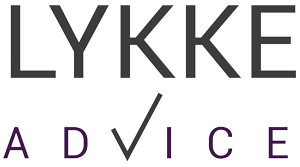Those who work in the EU bubble frequently hear EU policymakers discuss the central role that small and medium-sized enterprises (SMEs) play in the European economy, how they represent around 99% of all EU businesses, and how policymakers tirelessly work to defend the interests and promote the flourishing of these companies. And yet, you’d need to overturn every stone in Brussels to find an SME representative that walks the corridors of the European Parliament, Commission or Council. Why is it so?
The imbalance against large companies
Let’s start from the beginning. What is an SME? According to the EU’s definition, an SME is a private company employing less than 250 persons and having an annual turnover of up to €50 million, or a balance sheet total of no more than €43 million.
The leading reason behind the absence of SMEs in Brussels vis à vis large companies is, first and foremost, financially driven. Unlike SMEs, large companies have massive resources exclusively dedicated to lobbying and advocacy activities. The best way to explain the magnitude of this issue is to look at a practical example. Searching the EU Transparency Register, you’ll find that the largest digital tech companies with an office in Brussels spent almost €6 million per year in EU lobbying. In 2022, some companies declared a Brussels staff size of up to 30 people, and in hours worked, are equivalent to almost 9 full-time persons exclusively devoted to EU lobbying, 11 of which are accredited to enter the European Parliament premises.
Besides the sheer amount of money and people thrown into lobbying activities, large companies enjoy (at least partly) more flexibility in how they allocate their budget. In fact, if a key legislative file pops up in the pipeline of the EU institutions, it is relatively easier for a large company to adapt its team to emerging needs, for instance, by hiring additional staff, contracting multiple consultancy services, organising events, and so on.
Moreover, large companies, because of their sheer size and their capacity to influence their public perception, are often seen by policymakers as top stakeholders to consult during the legislative process because of their economic and employment weight. This is not necessarily a criticism of policymakers’ attitudes, but it certainly shows a disadvantage that individual SMEs have in influencing the legislative process vis à vis their larger counterparts.
The limited human resources of SMEs
SMEs often rely on very limited resources, both financial and human. Having someone fully dedicated to Government Affairs is rare to find in an SME, let alone a full department. Even simply monitoring the EU political and legislative landscape requires substantial efforts. One needs to understand how to silence all the white noise and focus on issues relevant to your company, and second, to understand the potential impact of a given proposal on your business and operations. Representing your company before decision-makers, explaining unforeseen consequences of legislation, developing suggestions, writing proposals and more all require a set of skills and a knowledge of the Brussels landscape that cannot be improvised and requires years of field experience to truly have an impact. Finally, smaller budgets also mean less flexibility in how to allocate resources in case or emerging threats and opportunities at the political level.
One could argue that SMEs are represented, albeit indirectly, in sectorial associations or SME-oriented organisations. That is certainly true, and we have examples of brilliant organisations representing the interests of small companies in Brussels. But while these associations can certainly represent the general interests of the sectors they represent, they can hardly become a means for individual companies to have their voice heard before lawmakers on a specific issue. Sector organisations have to seek compromise among their membership – which despite many commonalities, it is often fragmented along cultural, national and other divides. Moreover, their funds are often rather limited compared to those of large companies, especially when they rely mostly on membership fees and European and national project funds.
Boutique consultancies like Lykke Advice can be the right answers for SMEs willing to engage in the EU debate, for a number of reasons, from cost-efficiency to time-saving, flexibility, a knowledge-driven approach, and tailor-made services that are built around the needs and goals of the client. In the next two articles of this series, we will explore what other factors hinder a more proactive engagement of SMEs in EU policymaking and why boutique consultancies like Lykke Advice are the right solution for small and medium sized companies.
Contact us if you wish to learn more about our consultancy services.


